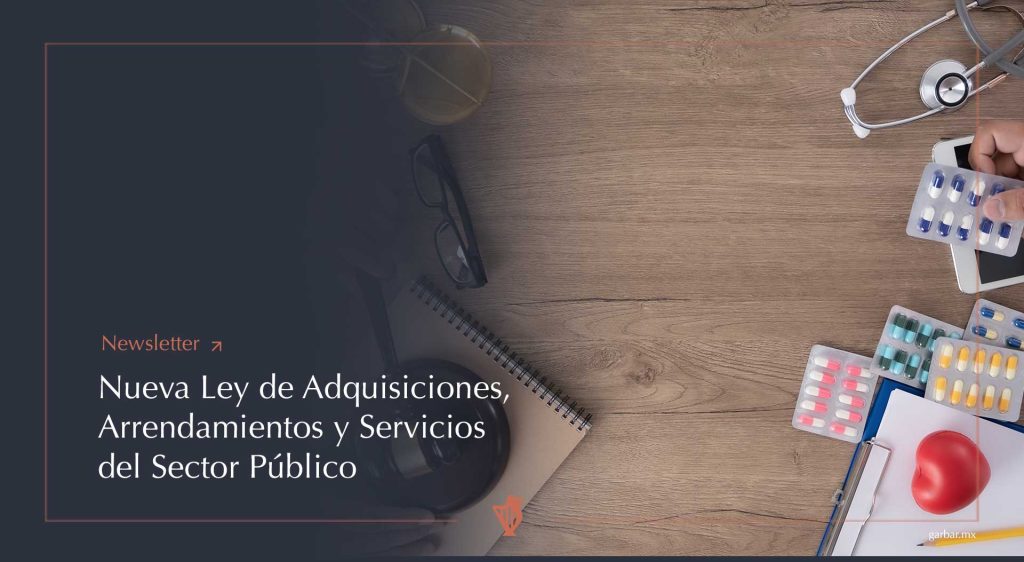Real Estate and Construction

New Public Sector Procurement, Leasing, and Services Law
The new Public Sector Procurement, Leasing, and Services Law ("Law"), published on April 16, 2025, in the Official Gazette of the Federation ("DOF"), introduces important changes in Mexican government procurement processes, including the creation of the Digital Public Procurement Platform (Plataforma Digital de Contrataciones Públicas) and the Federal Government Digital Store (Tienda Digital del Gobierno Federal), as well as the creation of the Strategic Procurement Committee (Comité de Compras Estratégicas).
The publication of the Law is the result of the proposed initiative sent by the Head of the Executive, whose purpose, she said, is to update the public procurement system to comply with the principles of efficiency, effectiveness, economy, transparency, and honesty, as well as to ensure the best contracting conditions for the State, based on the best practices in the matter.
The Law became effective the day after its publication, that is, on April 17, 2025, abrogating the previous Law, published on January 4, 2000, in the DOF, as well as its subsequent amendments.
The following are the main differences and new features of the new legislation:
1. Some of the New Figures
Framework Agreements (Acuerdos Marco): This figure replaces framework contracts. Framework Agreements are entered into by the Ministry of Anti-Corruption and Good Governance ("Ministry") and the Ministry of Finance ("SHCP"), if applicable, with the participation of one or more agencies or entities as technical areas, with one or more potential suppliers, ensuring the best conditions for the State in terms of price, quality, financing, timeliness, and other relevant circumstances under the principle of equality. These will be managed under the Digital Store of the Federal Government.
Strategic Contracting Committee ("Committee"): This Committee is created and is responsible for approving goods or services that may be acquired, leased or contracted on a consolidated basis. The Ministry is in charge of the Committee.
Quoter (Cotizante): The individual or legal entity that confirms its quotation in the direct award procedure.
Digital Platform for Public Procurement ("Platform"): It is an official and transactional electronic tool, integrated by various modules, through which the contracting procedures in procurement, leasing, and services will be carried out, as well as the subscription and administration of contracts derived from these. The competitive process to sign framework agreements and their administration will be carried out in said Platform. It is administered by the Ministry, and replaces the CompraNet system.
Federal Government Digital Store: It is the module of the Platform, through which acquisitions of goods or services are made in an agile and expeditious manner through supply or service orders.
2. New Developments in Contracting Procedures
• Competitive dialogue: The Committee may authorize SHCP to carry out this procedure for highly specialized cases, due to the specific sector or area, in any of the following three cases:
When, to satisfy the needs of the area using or requiring the goods or services, it is essential that the service, as it is available on the market, be subject to prior design or adaptation work;
When the provision of the service or the acquisition of goods that are the object of the contract includes a project or innovative solutions, and
When the bidder, due to specific circumstances related to the nature, complexity or configuration of the project, cannot precisely establish the technical specifications.
• Direct award with negotiation strategy: This procedure is exceptional given that the SHCP, with prior authorization from the Ministry, may carry out procurement, leasing and services contracting, without subjecting itself to the public bidding procedure, when:
There is justification that the contracting is for urgent reasons due to unforeseeable events;
It is required to resolve matters that cannot be delayed because there is a risk of causing serious damage or harm to the State, and
That it is not possible to receive the goods, leases or services on time through public bidding or invitation to at least three persons.
3. Changes in Economic Criteria
Unacceptable price: This figure was redefined, indicating that it is not admissible for awarding a contract when the amount offered (i) exceeds the budget authorized for the contract or (ii) is 10% higher than the average market amount.
4. Sustainable Approach with a Social Perspective
It incorporates a focus on socially responsible contracting and environmental sustainability, promoting the inclusion of vulnerable groups, cooperatives, Mipymes (micro, small, and medium-sized enterprises), and social economy organizations.
Incentives are granted through additional points in bids to companies with gender equality practices, business integrity or labor inclusion policies.
5. Transitory
Procurement procedures that are in process at the date of entry into force of the Law will continue to be processed until their conclusion in accordance with the provisions in force at the time of their initiation.
Conciliation, non-conformity, and sanction proceedings that are pending or pending resolution at the date of entry into force of the Law, must be substantiated and concluded in accordance with the provisions in force at the time such proceedings were initiated.
The provisions related to the Digital Platform for Public Procurement will become effective on the date each of the modules that comprise it begins to operate, in accordance with the notices published by the Ministry in the Official Gazette of the Federation.